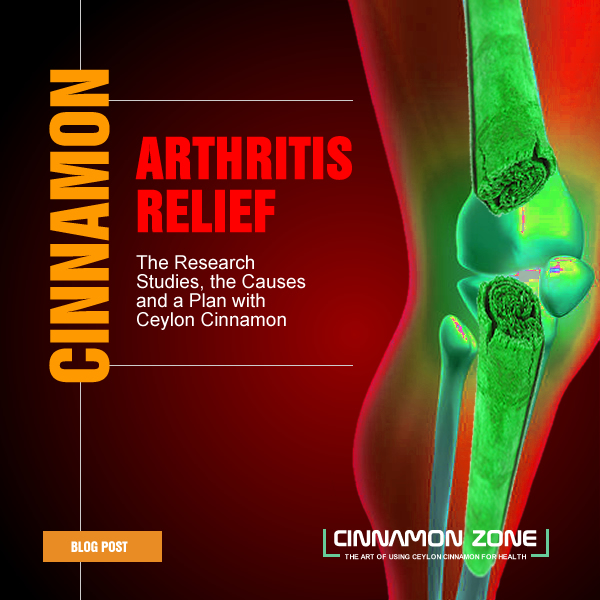
Can you give Cinnamon to your pet animals like dogs and cats? Yes you can use cinnamon for your pets. It is just as effective as for humans. Discover how to use Cinnamon for your pets with information on what diseases it addresses, the dosage and possible side effects. According the ASPA Cinnamon is nontoxic to dogs, cats and horses.
Cinnamon has a storied history of health benefits and increasingly many pet owners are giving cinnamon to their pets. Due to excessive consumption of processed food and antibiotics our pets are suffering from the same ailments that we suffer from like diabetes, Candida, irritable bowel syndrome and much more.
The problem has gotten worse with advent of pets kept in cramped apartments with virtually zero access to the outdoors especially for small pets who tend to suffer a disproportionate number of illnesses. The top ten most serious pet diseases include diabetes, arthritis, obesity, dental diseases, all of which can be controlled to a large extent with cinnamon.
According to the CDC keeping your pet healthy might improve your health too. Called Zoonoses, these are diseases people can get from animals. Among the list is Salmonella and Campylobacter which some studies show can be fought fairly effectively with Cinnamon. Even though the studies were done almost exclusively with Cinnamon Oil, the much more concentrated distilled form of cinnamon, regular use of powder maybe work well as a preventive measure.
WHICH TYPE OF CINNAMON FOR DOGS
If you intend to give your dog or cat Cinnamon on a regular basis switch to Ceylon Cinnamon. Regular grocery store cinnamon has high levels of Coumarin (read more here) which can damage the liver in us humans. The same should be true for dogs and cats. Like us dogs and cats can suffer from diabetes, arthritis, cancer and a host of ailments that we humans suffer from.
Some people buy Ceylon Cinnamon powder for their horses come winter time. Usually to keep their bones warm. There is no indication that dogs, cats and horses have any more allergic reactions to Cinnamon than humans. Like humans a small minority of pets can be allergic to Cinnamon of course. They key is to test it in increments.
WHICH FORM OF CINNAMON TO USE FOR PETS
It goes without saying; cinnamon powder is the best way to give your pets cinnamon. You really don’t want your pets to chew on cinnamon sticks because there is always the possibility they can choke on it. But Cinnamon powder is versatile and can easily be mixed with their food. And surprise surprise, it even improves food palatability for dogs and cats. Horses maybe not so much.
Of course if you wish, you can boil some cinnamon sticks and make a Cinnamon Stick Tea for your pets. They might like it. But make sure you cool the tea. My sister’s pet dog for example only wants iced water and she does like her cinnamon tea too. She won’t drink warm water however. What a spoilt dog. Oh well they are our dear friends.
10 BENEFITS OF CINNAMON FOR PETS
-
Improves food palatability – Believe it or not dogs get and cats get sick and tired of their food just like us. Us humans have such a variety of food that dogs often do not get. Maybe that is why their life spans so short to begin with. Cinnamon especially Ceylon cinnamon has this amazing ability to create complex flavors that improves food palatability. Now your pets is going to look forward to a nice meal.
-
Warms their bones during winter – Especially if you have a dog who is dealing with symptoms of arthritis Cinnamon it will go some way towards alleviating the pain. Cinnamon increases body heat which warms the body especially the bones.
-
Bone and cartilage development – Cinnamon has good levels of manganese and magnesium which is good for bone and cartilage development.
-
Removes bad gut bacteria – Ever seen a cat chew on grass?. This apparently to relieve an upset stomach according to catchow.com. Cinnamon is the perfect spice to help with getting rid of parasites and help with regular bowel movements. As a powerful anti-bacterial Cinnamon helps get rid of bad bacteria in your pet’s stomach. Of course you should still allow your cat to chew on grass because it helps them regurgitate hair, bones are other indigestible matter. But if you have a house cat with no access to grass, a little Cinnamon will help, but also consider growing some grass in your apartment.
-
Help with digestion – Like humans dogs and cats especially those exposed to processed foods can have digestive issues. Cinnamon has this remarkable ability to aid to the digestion process by delaying the gastric emptying process. That helps your pets better absorb nutrients by digesting it properly.
-
Canine Candida – According to this article dogs suffer from Canine Candida, an organism classified both as a yeast and fungus. The list of symptoms of Canine Candida is quite extensive according to this article and includes skin disorders, allergies, lethargy, bowel disorders, rashes, overly hungry and or overweight, bloating, intestinal gas, strong doggy odor, dull or dry greasy coat, hyperactivity, genital rashes and itching, chewing of the paws, legs or tail, shaking of the head, bladder and urinary track infections. Cinnamon is one of the best things to fight Candida in humans and should work perfectly for your pets.
-
Improves mood – Is your dog feeling depressed.? Try some Ceylon Cinnamon. Cinnamon improves mood and reduces irritability. My grand mother had a cat who was rather depressed. And grandma being one to try all kinds’ ayuvedic treatments gave some cinnamon to her and all indications are that cat’s mood improved. Not that cats are given to exuberant expressions of joy but there seems to be a visible improvement in her attitude.
-
Blood sugar control – Believe it or not even dogs get diabetes according this article. This is apparently more common in obese or female dogs. Just like humans. According to bark.com “Though there are no universally accepted definitions of dog diabetes, the United Kingdom’s Royal Veterinary College identifies two forms: insulin-deficiency diabetes (IDD) and insulin-resistance diabetes (IRD). Neither matches any kind of human diabetes exactly “. We feel it is worth a try. Since cinnamon has about a 3-5% effect on blood sugar levels, there is no reason why it cannot work for your dog or cat.
-
Dog breath – If you ever smelled the breath of some dogs and cats it can be absolutely foul. According to this article on webMd “ Bad breath is the result of a build-up of odor-producing bacteria in your dog’s mouth, lungs, or gut. Persistent bad breath can indicate that your dog needs better dental care or that something is wrong in his gastrointestinal tract, liver, or kidneys”.
If it is related to bad bacteria in the gut, cinnamon will clean up the bad bacteria in a flash. If it is related to dental hygiene issues like gum disease, regular ingestion of Cinnamon stick tea would be the perfect way reduce tooth decay and gum disease and get rid of bad oral bacteria. Some dogs are more prone to oral healthy issue.
-
Heart Health – While studies on cinnamon for pets is very small, this small 2012 study found that cinnamon had a protective effect on heart performance.
DOSAGE OF CINNAMON FOR PETS
| Weight of pet | Cinnamon Powder | Cinnamon stick tea |
| 1 -10 lbs | 1/16 teaspoon | less than 1/4 cup, 1-3 times/day |
| 10-20 lbs | 1/16-1/8 teaspoon | 1/4 cup, 1-3 times/day |
| 20-50 lbs | 1/8 tsp ½ teaspoon | 1/4-1/2 cup, 1-3 times/day |
| 50-100 lbs | ¼ – ¾ teaspoon | 1/2-1 cup, 1-3 times/day |
| Over 100 lbs | ¾-1 teaspoon | up to 1 cup 3 times/day |
We based the above recommendations on a combination US Dept of health guidelines for adults and the German Bfr guidelines which says no more than 0.81 per 132lbs if using Cassia Cinnamon. If you are using Ceylon Cinnamon we believe you can easily double this rate without undue risk.
SIDE EFFECTS
- Cinnamon powder can create a choking hazard – Make sure the bag of cinnamon powder is not accessible to your dog. If they start playing around with it and ingesting it in large wallops, there is a small chance they might choke. A friends dog found a piece of Cinnamon stick in the house and started chewing on it. We had a devil of a time prying it off her mouth. Cinnamon sticks can create a choking hazard. So keep it away.
- Avoid Cinnamon tablets – Cinnamon tablets are not a good idea. We are Meaning cinnamon tablets are full of gunk and fillers, not mention rather corrosive on the stomach lining if not mixed well with food.
- No Cinnamon oil for dogs and cats. – Avoid ingesting or breathing in Cinnamon oil for your pets. While there is no reason why Cinnamon Bark Oil cannot bring the same benefits it brings to humans, giving it to your pets may be unfeasible. Their nostrils are super sensitive to strong smells (especially cats) and it might possible effect their sense of smell adversely. Even mixed with food and ingested while safe for humans, may not be good for pets.
CONCLUSION
We have not cited any scientific studies in this post with the exception of one obscure study for dog heart health because all the studies on the benefits of cinnamon is for humans. But you can check the human studies on the benefits of cinnamon and draw your own conclusions. The main thing is that Cinnamon is not dangerous for your cats, dogs and horses. Of course we are not sure if it works well for your pet Squirrel, Iguana or Tortoise. But it should be safe for pet hamsters and mice. That is if the cat does not get the hamster first.



